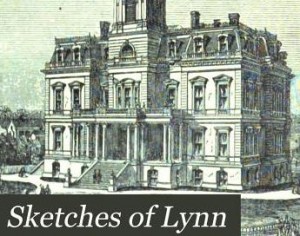 While the Civil War disrupts much of Baptist life, as it does the life of the two American nations, Baptists continue their nineteenth-century pattern of growing through the establishment of new congregations. By the Civil War-era, the momentum of Baptist growth had swung to the South, although the war itself, by severely disrupting southern society and economic structures, tilted momentum back to the North.
While the Civil War disrupts much of Baptist life, as it does the life of the two American nations, Baptists continue their nineteenth-century pattern of growing through the establishment of new congregations. By the Civil War-era, the momentum of Baptist growth had swung to the South, although the war itself, by severely disrupting southern society and economic structures, tilted momentum back to the North.
Today in Massachusetts a newly-established Baptist congregation marks an important rite of passage: acceptance into a local Baptist association.
While local church autonomy is foundational to Baptist life, congregations commonly join together in voluntary associations of like-minded Baptist churches for purposes of mutual edification and ministry.
The early story of the Third Baptist Church of Wyoma is thus recorded:
In the autumn of 1858 the citizens of Wyoma held preliminary meetings for the purpose of forming themselves into a religious society. The organization was legally effected October 27, 1858, with John C. Blaney, Moderator. The name assumed was the Third Baptist Society. The officers were a Moderator, Treasurer, Collector, Assessor and five standing committees. Measures were immediately taken to secure a lot of land upon which to erect a church edifice, and solicit funds for the house. The land was given and deeded to the society by Upton J. Peabody. The house was erected on the north side of Boston street, a few rods east of the square, and dedicated in 1860. Great credit is due to the late J. C. Bacheller for the liberal support which he gave to this enterprise. He contributed largely to its funds, and while a resident of Wyoma manifested a commendable interest in its prosperity.
The Sunday School was organized and sustained as a mission interest, largely through the efficient labors of John C. Blaney. In 1859 it was united to the Salem Baptist Sunday School Convention.
The church was organized June 18, 1861, under the auspices of Rev. W. C. Richards, then pastor of the First Baptist Church, of Lynn, with eight constituent members who were dismissed from the First Church. The church was publicly recognized as a Baptist church by ten Baptist churches of the Salem Association, December 27, 1861.
Sunday School is yet an innovation in Baptist life, largely confined to the education of young people and not embraced by many congregations at this time. Urban Baptist congregations at this point in time tend to be more receptive of establishing Sunday Schools. And increasingly, Sunday Schools are proving to be a means of assisting in the founding and/or growth of new congregations, as is the case with the Third Baptist Church.
Source: David N. Johnson, Sketches of Lynn, or, the Changes of 50 Years. Lynn, Mass: Thomas P. Nichols, 1880, pp. 424-425 (link)


